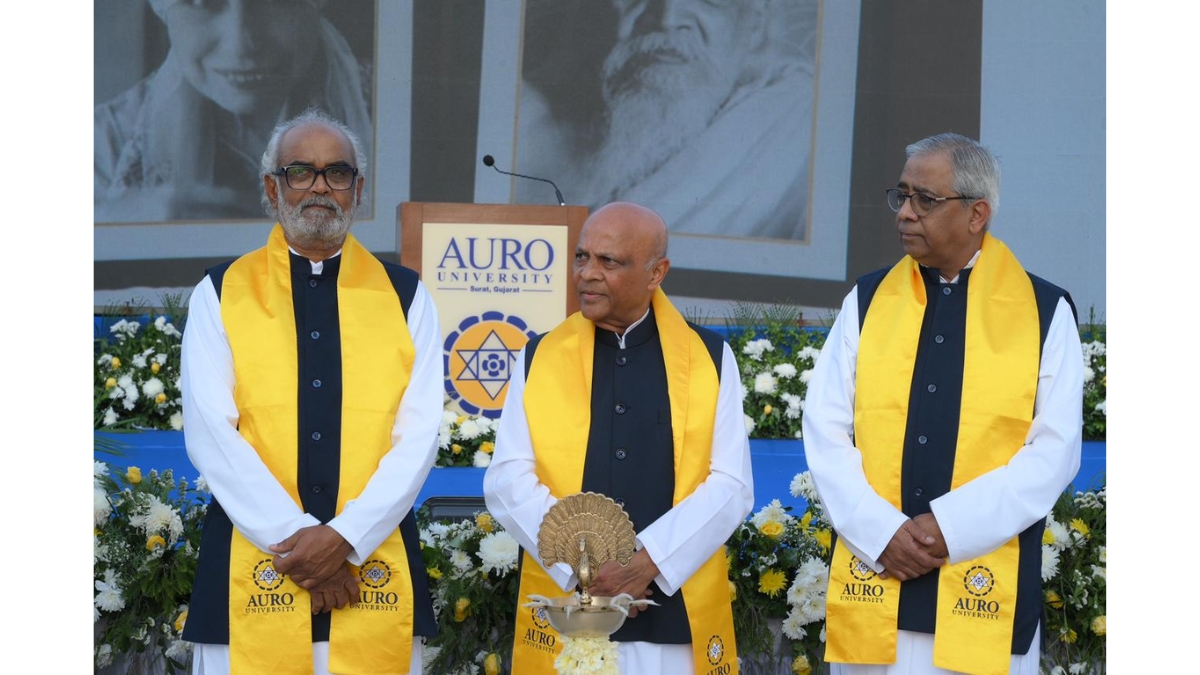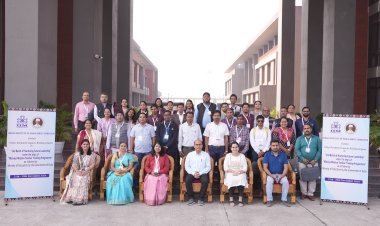IIM Sambalpur Unveils Udbhavanam: Establishing a Center of Excellence for Future-Ready Product Management
Notably, IIM Sambalpur has also become the first institution in the country to establish a university chapter of the International Software Product Management Association (ISPMA).

- IIM Sambalpur has become the first institute in the country to establish a student chapter of the International Software Product Management Association (ISPMA) Globally.
Sambalpur, October 08th, 2024; IIM Sambalpur, one of the premier management institutions, announced the inaugural edition of Udbhavanam, an innovative event dedicated to the future of product management. Notably, IIM Sambalpur has also become the first institution in the country to establish a university chapter of the International Software Product Management Association (ISPMA). The US-based management consulting firm, McKinsey & Company asserts that the role of the manager is expanding due to the growing increasing significance of decision-making and a heightened emphasis on design within software methodologies. In response to the rising demand for expertise in product management, IIM Sambalpur has initiated this event, which resulted in establishment of Center of excellence, spearheaded by the AlphaBeta - in collaboration with the International Software Product Management Association (ISPMA), with the theme of the event "Future-Ready Products: Mastering Innovation in Product Management." To foster cultivating the of product management, experts, academicians, and industry leaders engaged in discussions regarding the rapid transformations occurring in product management, driven by technological advancements and evolving consumer demands.
Prof. Mahadeo Jaiswal, Director, IIM Sambalpur said, "India is set to become the epicenter of product management, fostering innovation and entrepreneurship through platform-based models and cutting-edge technologies like AI. By embracing our core values of innovation, integrity, and inclusiveness, we are building centers of excellence in collaboration with ISPMA and the Ministry of IT. Our vision is to transform education and business ecosystems, enabling seamless collaboration between producers and consumers, and addressing both local and global challenges. Through groundbreaking research, comprehensive case studies, and the democratization of business, we aim to nurture responsible leaders with entrepreneurial mindsets, creating a thriving and inclusive society that drives the next wave of global innovation."
The Chief Guest, Prof. Hans-Bernd Kittlaus, Global Chair of ISPMA, Came from Germany , spoke on topic of "Platform vs. Product – What is Different From a Product Manager's Perspective", and said, "In the modern business landscape, platforms have evolved beyond their technical origins to become the core foundation for value creation across industries. From banking to automotive, software-driven platforms are now integral to managing not only digital products but also physical goods embedded with sophisticated technologies. As product managers, understanding how to leverage these platforms is critical to amplifying a company's market presence and sustaining technological leadership.
I would like to extend my heartfelt thanks to the members of the AlphaBeta-ISPMA University Chapter at IIM Sambalpur for their outstanding efforts in organizing this event and for creating centers of excellence in collaboration with ISPMA and the Ministry of IT."
The event was followed by insightful keynote speeches from eminent personalities including Keynote Speaker, Sapna Grover, Partner Director, Product Manager, Microsoft on the topic "Product Management in the Age of AI." She said, “As a product maker with a journey from DRDO to startups, Pegasystems and now Microsoft, I have witnessed firsthand the transformative power of AI. AI economy is growing at an impressive pace and enhancing productivity across all sectors. Gen AI is not just a buzzword; it’s creating real value, with soaring investments in AI startups despite a general decline in funding. Every company is integrating AI into their products, striving to solve local & diverse set of problems. As a product manager, I view our role as mini CEOs, balancing customer needs, business goals, and technological solutions. Embracing AI responsibly is essential to building a positive and inclusive society, enabling us to focus on what truly matters and drive the next wave of innovation.”
Furthermore, Guest of Honor, Prof S. Sadagopan, (Chairman of ISPMA India Chapter) conducted a workshop titled "SPM Essentials for Startups: From Vision to Execution”, he emphasized that software is not merely a tool; it constitutes the very fabric of our future. As we embrace innovation and leverage technology, we possess the potential to transform every industry, establish startups that redefine our world, and construct a brighter future through institutions that empower the leaders of tomorrow. He also stated that IIM Sambalpur has become the first institute in the country to establish a student chapter of the International Software Product Management Association (ISPMA) globally, joining other institutions like the University of California, Berkeley.
Followed by a panel discussions, entitled "Bridging Real and Virtual: Strategies for Seamless Digital Integration", by Rahul Singh Babu, Senior Director, HighRadius; Rupam Bhattacharjee, Chairman & MD, Waysahead Global; Ankita Parihar, Entrepreneur, Utpan; Srimoyee Bhattacharya, Product Lead, BFSI; Saraja Kumar Panda, Director, ServiceNow and Shresta Sahani, VP and Zonal head-east, HDFC asset management company.
The event concluded with a session titled Perspective: Taskmaster to Trailblazer, by Venky Mahadevan, Independent Director(Board Member), Fellow-British computer society, Fellow – ISPMA; Deepak HP, Director of Product Management, SAP Labs; Nirav Palan, Product Manager, ICICI Bank; Dr. Gregory Dunn (Dean - Hari Shankar Singhania School of Business); and Abhijeet Bendigiri, Director of Product Management, Oracle (Moderator). This session examined the evolving role of contemporary Chief Information Officers (CIOs) as they transition from being task-oriented managers to becoming leaders who facilitate technological change and foster innovation in products.











